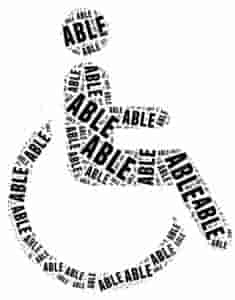People living with a disability can have more expenses than others. The government created the Achieving a Better Life Experience (ABLE) Act of 2014, allowing states to create tax-advantaged savings programs for eligible disabled people.
Under the ABLE Act of 2014, those eligible can claim itemized deductions as long as their expenses are under the qualified ones listed under the law. One of the qualified disability expenses pertains to medical expenses. Those with disabilities can claim a deduction for the medical and dental expenses for themselves, their spouse, or their dependents.
Medical expenses pertain to the cost of diagnosis, cure, mitigation, treatment, or prevention of disease and the costs for treatments affecting any part or function of the body. The deducted amount should be the expenses that are more than 7.5 percent of the adjusted gross income. To have a more precise example of what you can deduct under medical expenses, it can include Braille books and magazines that are more than the price of regular printed editions, cost, and repair of special telephone equipment or hearing-impaired persons, cost of a wheelchair, and the costs for operating and maintaining it, cost and care of a guide dog or other animals aiding a person with a physical disability, premiums for qualified long-term care insurance, and the like.
Another expense you can deduct is impairment-related work expenses. Here, the expenses that a person with a disability pays for that are necessary for them to work can be listed in their itemized deduction. Under this expense, a person is considered disabled if they have a physical or mental disability and it functionally limits your employment or if they have a physical or mental impairment and it limits one more of their major life activities like walking, speaking, breathing, learning, or working.

Further, the ABLE Act of 2014 allows some payments to be non-taxable for people with disabilities. This includes benefit payments from a public welfare fund, workers’ compensation for an occupational sickness or injury if paid under a workers’ compensation act or a similar law, compensatory damages for physical injury or physical sickness, disability benefits under a no-fault car insurance policy for loss of income or earning capacity as a result of injuries, and compensation for permanent loss of use of a part or function of the body or permanent disfigurement.




